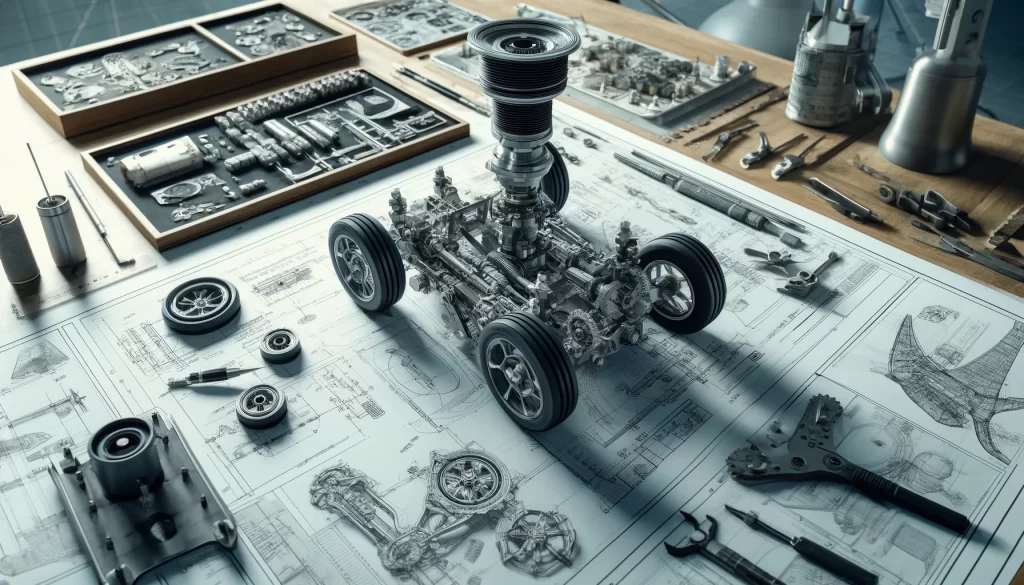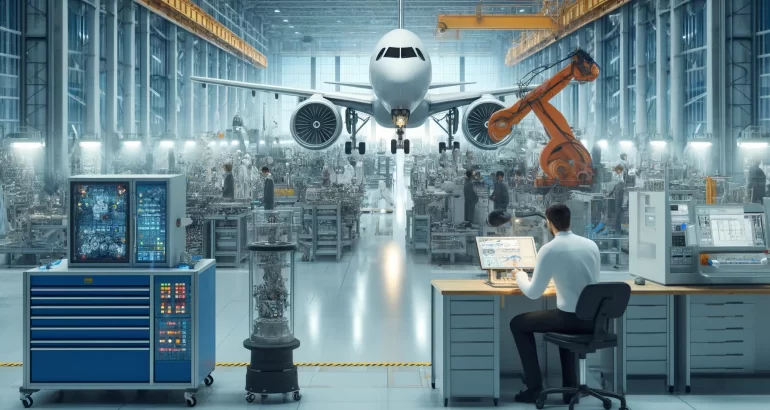Explore the importance of reliability in aircraft spare parts suppliers with a focus on the European market. Understand how dependable suppliers impact aviation safety and efficiency. Gain insights into the challenges and strategies of European suppliers and learn about the essential attributes of trusted parts providers in this detailed article.
Introduction
In the highly regulated and safety-centric aviation industry, the reliability of aircraft spare parts suppliers is not just a preference—it’s a necessity. Airlines and aircraft maintenance organizations heavily depend on the trustworthiness of their parts providers to ensure smooth operations and safety compliance. This article explores the critical importance of reliability in the procurement of aircraft spare parts, focusing on the European market and shedding light on aspects often overlooked by industry insiders.
Understanding Reliability in Aircraft Spare Parts Supply

Defining Reliability in Aviation
Reliability in the aviation parts industry encompasses several crucial factors, including OEM (Original Equipment Manufacturer) certification, part longevity, supplier consistency, and compliance with rigorous safety standards. A reliable supplier not only meets these expectations consistently but also ensures that every part delivered can be traced back to its origins and complies with international aviation regulations. This rigorous adherence minimizes the risk of failures and enhances overall safety in operations.
The Role of Reliable Suppliers in Aircraft Maintenance and Safety
Dependable aircraft parts suppliers play a pivotal role in maintaining the high safety standards required in aviation. The direct impact of reliable sourcing is seen in the enhanced operational efficiency of airlines. For instance, consistent and timely delivery of necessary parts minimizes downtime for aircraft, thus improving fleet availability and operational readiness. This reliability translates into better service for passengers and higher profitability for airlines through more efficient asset utilization.
FAQs
- What exactly does OEM certification involve for aircraft spare parts?
- OEM certification ensures that the parts manufactured or distributed meet the specific requirements set by the original equipment manufacturer, including design specifications, material standards, and performance benchmarks. This certification is crucial for maintaining safety and reliability in aviation.
- How does a reliable supplier impact aircraft safety directly?
- A reliable supplier ensures that high-quality, compliant parts are available when needed, reducing the risk of mechanical failures. This directly enhances the safety of aircraft operations by maintaining the integrity and performance of critical components.
- Can a supplier still be considered reliable if they provide non-OEM parts?
- Yes, suppliers can still be reliable with non-OEM parts if these parts meet all the necessary quality and safety standards and hold appropriate certifications like PMA (Parts Manufacturer Approval) from aviation authorities, ensuring they are suitable substitutes.
The European Market for Aircraft Spare Parts

Overview of the European Aviation Components Market
Europe boasts a mature aviation market characterized by a dense network of suppliers, manufacturers, and maintenance firms. The region’s suppliers are crucial in the global aviation supply chain, providing parts not only for local carriers but also for international markets. Key players range from large-scale OEMs to specialized smaller firms, each playing a role in the broad spectrum of parts distribution and supply.
Challenges Faced by European Aircraft Parts Suppliers
Despite the robustness of the European market, suppliers face significant challenges, including stringent regulatory requirements that vary from one country to another and the complexities of logistics involving cross-border transactions. These suppliers must navigate a landscape of changing tariffs, customs regulations, and potential supply chain disruptions while maintaining the high standards of reliability and compliance demanded by the industry.
FAQs
- What are the most significant market trends affecting aircraft spare parts suppliers in Europe?
- Current trends include increasing demand for aftermarket parts due to the aging European fleet, digital transformation in supply chain operations, and the growing importance of sustainability in parts manufacturing and recycling.
- How do regulatory changes impact European aircraft parts suppliers?
- Regulatory changes can impact compliance costs, supply chain logistics, and market entry barriers. Suppliers must stay agile and informed to adapt quickly to regulatory shifts, which can vary significantly across different European countries.
- What strategies do European suppliers use to overcome logistical challenges?
- Many use advanced logistics technologies such as AI and blockchain for better inventory management and tracking, partner with local logistics firms to expedite customs processes, and develop robust distribution networks to mitigate delays.
Key Attributes of a Reliable Aircraft Spare Parts Supplier

Certifications and Quality Assurance Practices
Reliable suppliers are distinguished by their commitment to quality assurance and regulatory compliance. Certifications such as ISO 9001 and AS9100 are indicative of a supplier’s adherence to international quality standards. These certifications ensure that suppliers not only meet but often exceed the minimum safety and quality requirements, providing peace of mind for aerospace companies and reinforcing the trust placed in them.
Logistical Excellence and On-Time Delivery
The capability to manage logistics effectively is a hallmark of a reliable supplier. Advanced inventory systems and efficient shipping logistics ensure that the right parts are available at the right time. This logistical prowess is critical, especially when dealing with AOG (Aircraft on Ground) situations where the rapid delivery of specific parts can make the difference between a minor delay and a significant operational disruption.
Case Studies: Reliable Suppliers in Action
Several European suppliers stand out for their exceptional reliability. For example, a German supplier has consistently demonstrated its ability to manage an expansive inventory and deliver parts within stringent timelines, significantly reducing aircraft downtime for several major airlines. Similarly, a supplier in France has developed a sophisticated tracking system that ensures every part in their inventory is not only traceable but also compliant with both local and international regulations, setting a benchmark in regulatory adherence.
FAQs
- What is the difference between ISO 9001 and AS9100 certifications?
- ISO 9001 is a general quality management system applicable to any industry, focusing on customer satisfaction and continuous improvement. AS9100 includes all ISO 9001 requirements with additional aerospace-specific demands, including safety, reliability, and regulatory compliance.
- How important is just-in-time (JIT) delivery for aircraft spare parts suppliers?
- JIT delivery is critical for minimizing inventory costs and ensuring parts are available exactly when needed, reducing the need for extensive warehousing and helping to prevent AOG situations by speeding up the response time.
- What tools do suppliers use to ensure traceability of their parts?
- Suppliers utilize tools like RFID tags, barcodes, and digital databases to maintain detailed logs of part origins, handling, and installation. This traceability is vital for compliance, recalls, and maintaining the integrity of the supply chain.

Conclusion
The strategic importance of choosing a reliable aircraft spare parts supplier cannot be overstated. As this discussion underscores, the reliability of suppliers impacts every facet of aviation operations, from safety and regulatory compliance to operational efficiency and profitability. For airlines and maintenance organizations, investing time and resources in selecting the right parts suppliers is not merely an operational decision but a strategic one that has long-term implications for success and sustainability in the competitive aviation industry.
Links
- International Air Transport Association (IATA) – Aviation Standards and Regulations
- European Aviation Safety Agency (EASA) – Component Certification
- Aerospace Industries Association – Industry Facts and Figures
- Flight Global – News on Aircraft Parts and Supply Chain
- MRO Network – Insights on Maintenance, Repair, and Overhaul
